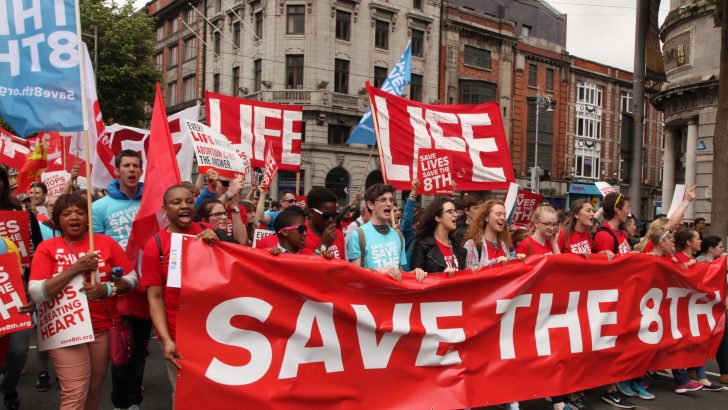The only way to stop this extreme abortion law is to vote ‘no’ writes Benedict Ó Floinn
By the time voters head to the polls on May 25, whatever one’s views about abortion, there will be little room for disagreement as to what the legal effects of the voters’ decision will be.
Before the campaign started, the Supreme Court made it clear that the only constitutional protection for the unborn child is contained in the Eighth Amendment. By now, everyone who has read the Referendum Commission booklet has seen that we are asked to ‘repeal and replace’. In other words, to remove the Eighth Amendment, and with it all constitutional protection from each unborn child up to birth, and in its place, we are asked to give the Oireachtas power to legislate as to when an abortion may be carried out.
How the Government will use this power, if we give it to them, is no longer guess-work. Draft legislation has been published and if it were read, the ‘no’ vote would undoubtedly prevail.
The legislation is not, as some have suggested, restrictive. It provides for a wide-ranging right to an abortion not only up to 12 weeks but also up to viability, i.e. up to six months (Head 4). In certain circumstances, the unborn child’s life may be ended right up until he or she has been born (Head 6). It is, by any standard extreme. Also, every lawyer will tell you that any limitations on access to abortions as might be set in legislation can be removed at any time by future governments or challenged.
That the Government’s plans will usher in abortion on request has been the focus of people’s attention – and rightly so. This is because our society will be judged by how it protects the weakest and most vulnerable and how it cares for pregnant women who are afraid or in crisis. However, the effects of repeal will not stop with the introduction of abortion on request.
The Eighth Amendment has been used by lawyers acting on behalf of the mothers and fathers of still-born children to hold careless third parties to account for the carelessness that led to the still-birth of their child. One such couple was Lavinia Doyle and her Italian-born partner, Luca Chiussi. In their case, Ms Doyle and her partner claimed that the HSE failed to detect or to respond appropriately to the onset of constant abdominal pain and caused or permitted her baby to die by failing to deliver him in time or at all.
The parents also complained that the hospital failed to inform Ms Doyle of the delivery options and failed to adhere to general and approved medical practices applicable in the circumstances.
In response, the HSE argued that Ms Doyle’s child was not a person within the meaning of the Civil Liability Act, 1961, the Act which allows one to sue for wrongful death. In their case, that was because the child was still-born but strikingly similar arguments were made by the State before the Supreme Court last February.
In Lavinia Doyle’s case and in the Supreme Court, the Eighth Amendment was the bulwark against this line of argument. As long as it remains in the Constitution, the Eighth Amendment makes it clear that the unborn is a person, with a right that does not depend on him or her being born alive. In the Doyle’s case, it helped them achieve what was described at the time as a “substantial” amount in settlement of their claims.
In the event of repeal, a still-born child will be deprived of that legal argument, no matter how careless the drunk-driver, no matter how negligent the hospital, no matter how irresponsible the State has been in causing his or her death. Holding the powerful responsible for their actions and enforcing the highest standards of care for mothers and their unborn children is another good reason for voting ‘no’.
There are members of the public who might have accepted a proposal which amended the Eighth Amendment in a limited way to deal with the exceptional cases of rape, fatal foetal abnormality or the like.
However, the Government chose not to amend or add to the Eighth Amendment. What has been placed before us is a simple choice: to sweep away the Eighth Amendment and give the Government the power that it seeks or to hold on to a legal provision that has helped to make Ireland one of the safest countries in the world in which to have a baby.
The only way to stop the Government’s plans is to vote ‘no’ and to urge others to do likewise. Hopefully, our public representatives will listen and treat a ‘no’ vote as a new beginning – and offer pregnant women more imaginative and supportive proposals than simply the State-sanctioned death of their unborn child.
Benedict Ó Floinn is a practicing barrister, author of Practice and Procedure in the Superior Courts and was a member of the Expert Group on the Courts Act. The analysis by himself and almost 200 members of the legal profession can be read at www.rights.ie



